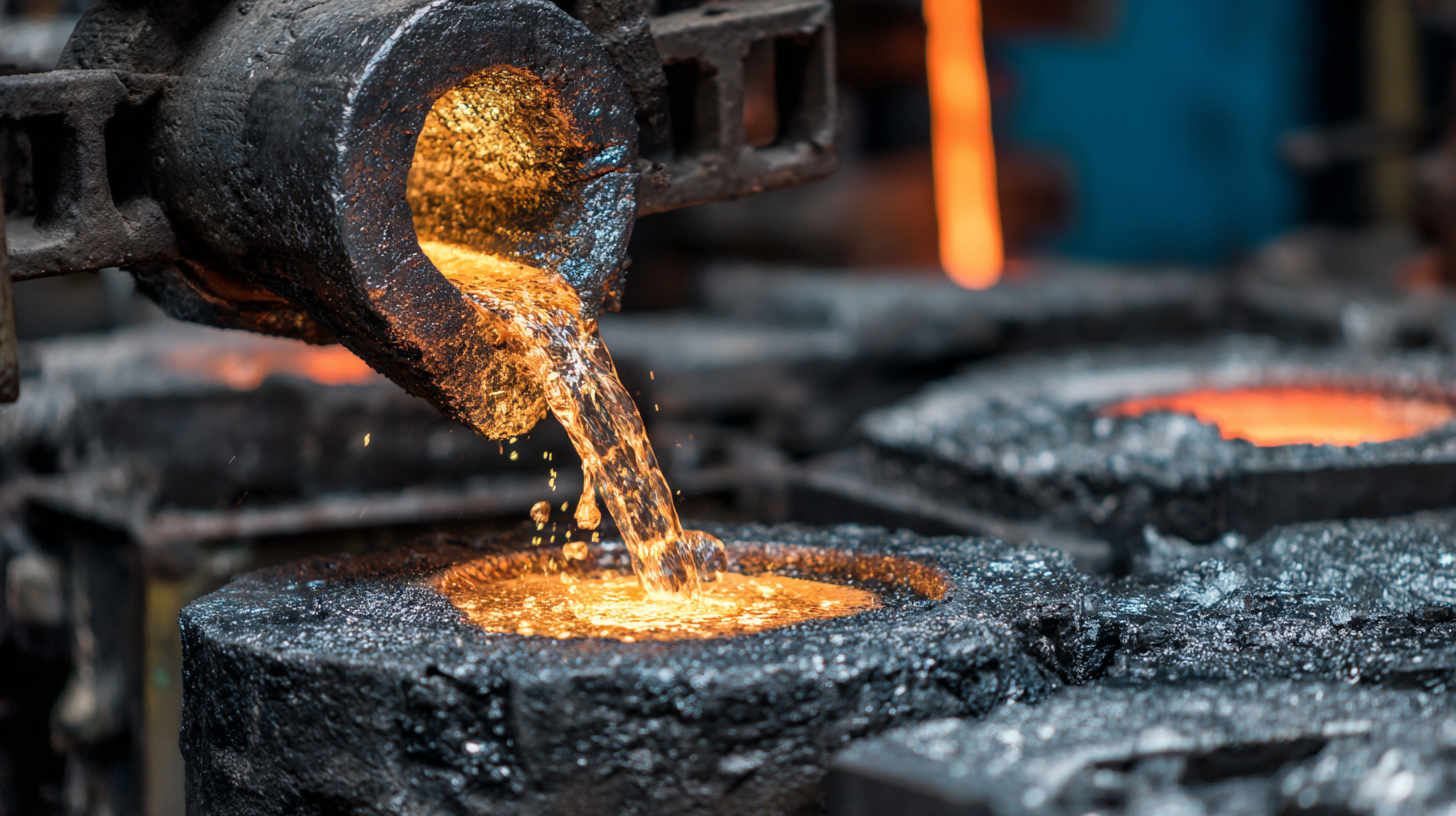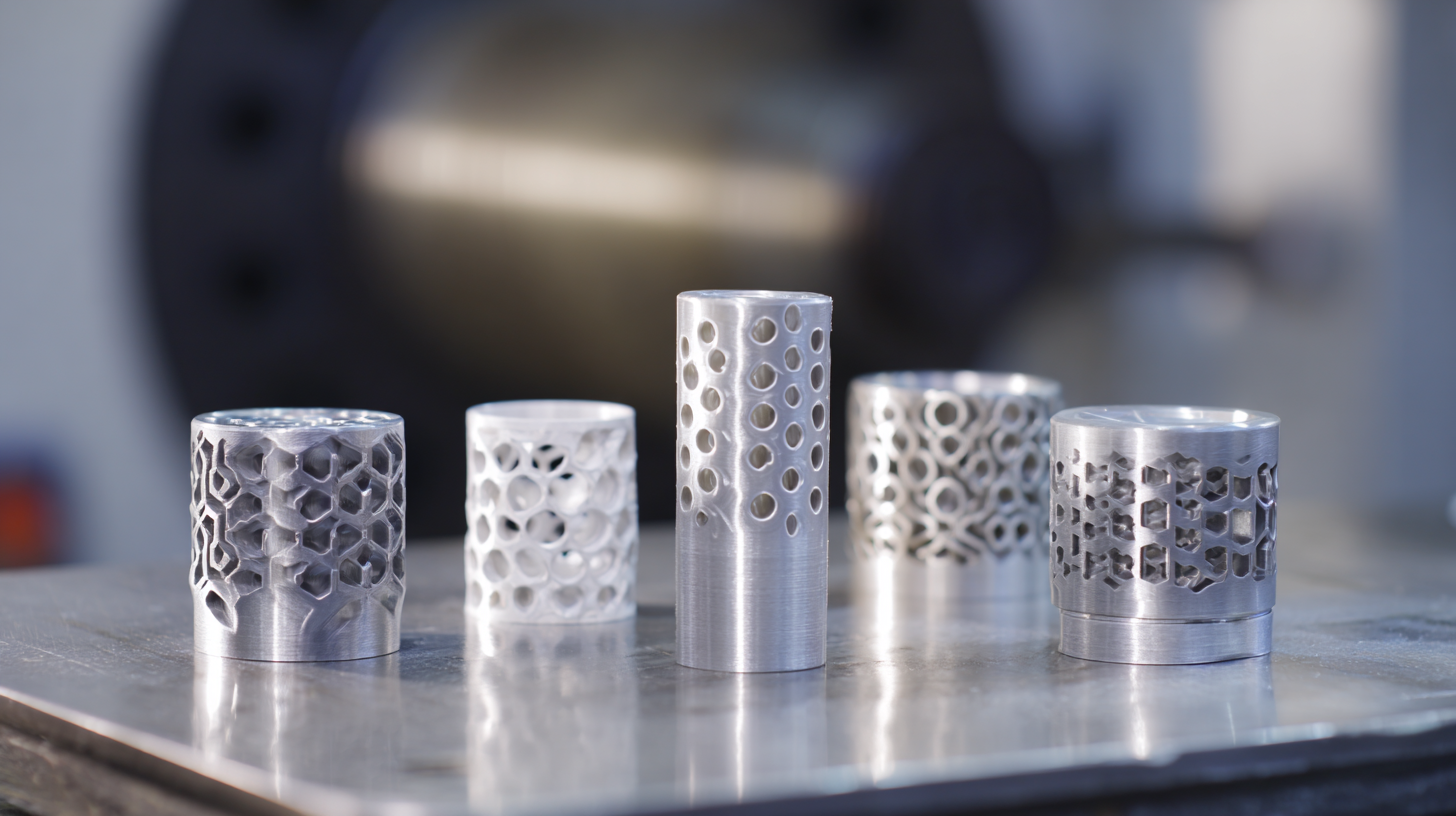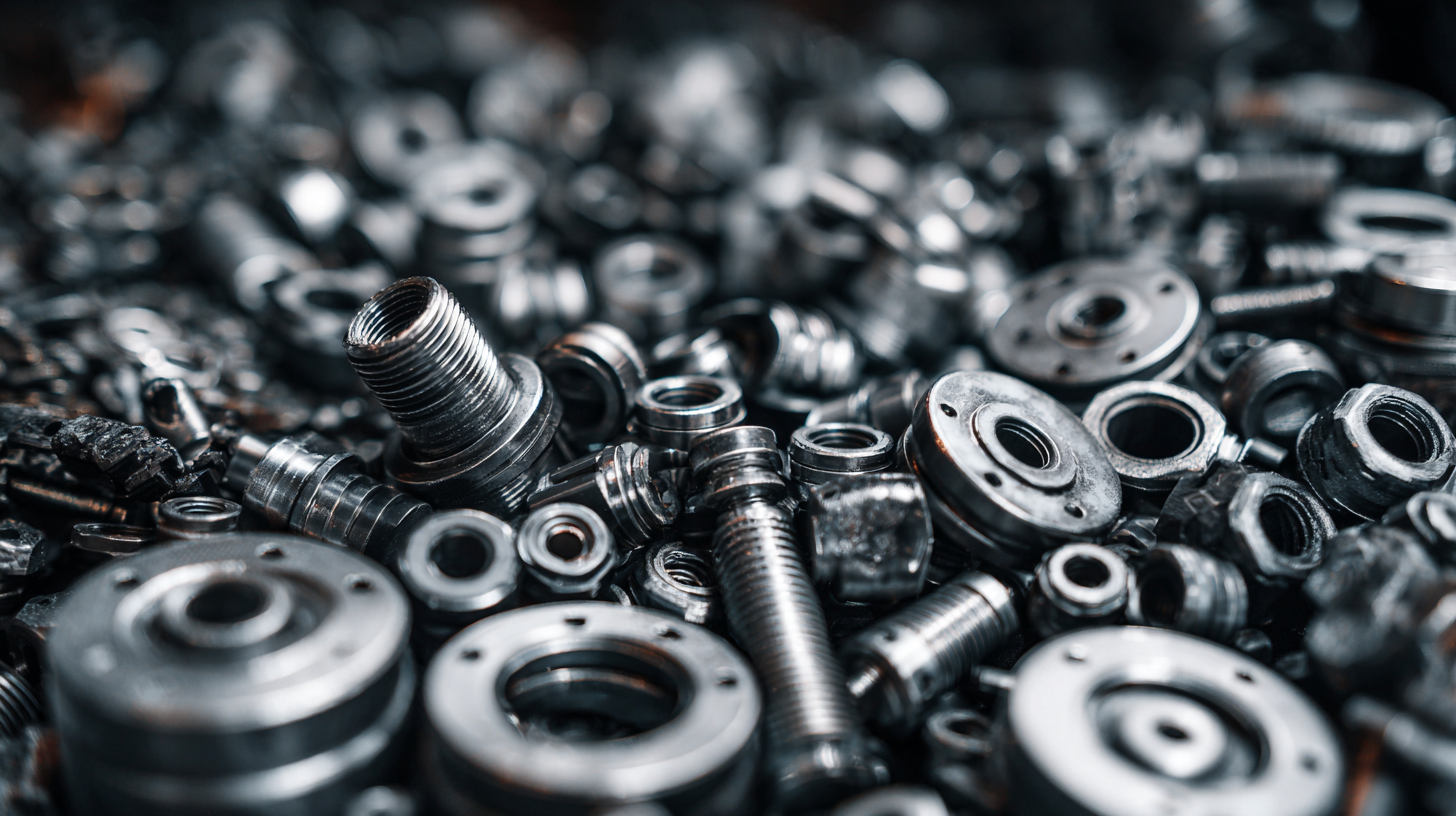 +86 180 0293 5268
+86 180 0293 5268






In the rapidly evolving landscape of manufacturing, selecting the right manufacturer for investment casting metals has become a crucial decision for businesses aiming to enhance their production efficiency and product quality. As we look ahead to the technology development trends of 2025, it is essential to understand the benefits associated with different types of investment casting metals. By making informed choices, companies can not only optimize their supply chains but also leverage advancements in materials and techniques to improve their final products. This blog will explore the various factors to consider when choosing a manufacturer, the advantages of using superior investment casting metals, and the emerging technologies that are set to reshape the industry in the coming years. Join us as we navigate the complexities of this decision-making process, ensuring that your investment casting needs are met with expertise and precision.

When it comes to investment casting, selecting the right manufacturer is crucial for ensuring the quality and performance of your metal products. The importance of this choice cannot be overstated, as the manufacturing process directly impacts the material properties and final characteristics of the parts produced. A competent investment casting manufacturer will have extensive experience and technical expertise, allowing them to optimize the casting process, select appropriate materials, and implement stringent quality control measures.
Moreover, the right manufacturer will understand your specific needs and can provide tailored solutions that meet your project requirements. By collaborating closely with their clients, they can offer insights into design improvements and potential cost-saving measures, while still maintaining the integrity of the final product. This partnership can lead to more efficient production cycles and superior end results, reinforcing the value of strategic manufacturer selection in investment casting.
When selecting the right manufacturer for investment casting metals, understanding the key factors that contribute to optimal material selection is crucial. The investment casting market is undergoing significant growth, with projections indicating a substantial increase due to advancements in technology and a focus on sustainability. According to recent industry reports, the global metal casting market is expected to continue expanding, driven by applications in automotive and construction sectors, with investment casting playing a vital role in enhancing product performance and efficiency.
In addition, with the increasing demand for electric vehicle (EV) components, the EV mold casting component market is projected to grow at a remarkable compound annual growth rate of 45.34%. This reflects the industry's shift towards innovative solutions and environmentally friendly manufacturing processes. When choosing a manufacturer, it's essential to consider their capabilities in handling diverse materials, such as aluminum and steel, while ensuring they are equipped to meet sustainability targets and address the evolving market demands. The right partner should align with these trends, offering advanced technologies and a robust understanding of your specific application needs.
| Factor | Description | Importance Level | Example Materials |
|---|---|---|---|
| Material Type | Selecting the right metal for casting based on application requirements. | High | Steel, Aluminum, Bronze |
| Cost Efficiency | Evaluating overall costs including material, labor, and tooling. | Medium | Stainless Steel, Cast Iron |
| Manufacturing Capabilities | Assessing the equipment and technology used by the manufacturer. | High | Cobalt Chrome, Magnesium Alloy |
| Quality Control | Processes in place to ensure consistent product quality and reliability. | High | Custom Alloys, Carbon Steel |
| Lead Time | The time it takes from order placement to delivery. | Medium | Aluminium Composite, Zinc Alloys |
| Customer Support | Availability of technical assistance and support during and after the project. | Medium | N/A |
The investment casting industry is witnessing a transformative shift fueled by advanced technologies that enhance efficiency and precision in manufacturing. One of the most promising advancements is the integration of blockchain and IoT devices for real-time inspection of casting defects. This innovative approach not only ensures better defect detection but also adds a layer of data traceability that is critical in meeting stringent quality control standards. Manufacturers can now track the entire production process, significantly reducing the risks associated with defects and improving overall product quality.
Recent market trends indicate robust growth in the investment casting sector, particularly in regions like India and Germany. The India Investment Casting Market is projected to experience substantial growth, climbing from USD 1.33 billion in 2023 to an estimated USD 2.5 billion by 2035, driven by advancements in manufacturing technologies. Similarly, the German market is also set for growth, which underscores the global shift towards embracing innovative casting methods. Investments in capabilities such as Vacuum Precision Investment Casting are becoming increasingly common, as companies strive to enhance their production techniques and maintain a competitive edge.
When selecting a manufacturer for investment casting metals, it's crucial to focus on reliability and quality control practices. A recent report by Grand View Research indicated that effective quality control in casting can improve product consistency and reduce operational costs by up to 30%. Therefore, verifying a manufacturer’s adherence to industry standards such as ISO 9001 or automotive certifications can significantly enhance your confidence in their capabilities.

Tips for evaluating a manufacturer’s reliability include reviewing their production processes and inspection protocols. Look for facilities that utilize advanced technology such as automated quality inspection systems, which can detect defects early in the manufacturing process. Additionally, consider a manufacturer's track record in delivering consistent quality over time—data from the American Foundry Society shows that companies prioritizing quality control in their operations report 15% fewer customer complaints and a significant reduction in rework costs.
Another essential factor is the supplier's response to feedback and issues. This not only reflects their commitment to quality improvement but also their ability to adapt to customer needs. By ensuring open communication and monitoring a manufacturer's response times, you can gauge their reliability and willingness to uphold quality standards effectively.
As the investment casting industry evolves, understanding future trends is crucial for manufacturers seeking to stay competitive. One significant development is the increased adoption of automated technologies and advanced materials. The integration of robotics in the casting process not only enhances efficiency but also reduces human error, leading to improved product quality. Moreover, materials such as high-performance alloys are being researched and utilized for their enhanced mechanical properties, allowing for lighter yet stronger cast products. Manufacturers who keep abreast of these trends can make informed decisions regarding the selection of materials that align with future market demands.

Another trend gaining traction is sustainability in investment casting. With growing awareness around environmental issues, manufacturers are exploring ways to minimize waste and reduce energy consumption throughout the casting process. Innovations such as 3D printing patterns and the recycling of metal scrap are becoming increasingly popular. This shift towards more sustainable practices not only meets regulatory requirements but also appeals to eco-conscious consumers. By prioritizing sustainability, manufacturers not only improve their operational efficiency but also enhance their brand reputation in a marketplace that increasingly values environmental responsibility.
